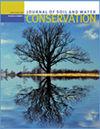妇女采取行动:多会议学习圈,讲故事,生态系统的关系保护
IF 2.6
4区 农林科学
Q2 ECOLOGY
引用次数: 1
摘要
目前的保护活动主要集中在一天的、演讲量很大的活动上,这些活动通常是针对农民(主要是男性)的。我们的项目为一群女性土地所有者创建了一个多时段的学习圈系列,通过讲故事和更多对话驱动的形式引入保护教育。其目标是建立关系,使妇女地主有能力采取行动。然而,其结果远远超出预期。该项目的促进者和女性土地所有者参与者不仅建立了行动关系,而且发展了一种类似于研究人员所说的认知生态学的伙伴关系。这种认知生态涉及不同和平等伙伴之间的合作,他们扩展彼此的思维和能力,使用工具和技术扩展认知(地图、土壤测试、租赁协议和模拟模型),并与环境互动。作为一个认知生态学,我们的小组促进者和女性土地所有者作为共同作者共同撰写了这篇文章。我们的合作提供了一个以讲故事和交流为基础的框架,以吸引那些需求没有通过传统项目得到充分满足的个人。我们的初步研究结果表明,通过提供建立行动关系生态系统的多会话规划,保护规划可能会更好地赋予更大范围的未充分参与的利益相关者权力。本文章由计算机程序翻译,如有差异,请以英文原文为准。
Women taking action: Multisession learning circles, storytelling, and an ecosystem of relationships for conservation
Current conservation outreach largely focuses on single-day, presentation-heavy events typically addressed to farmers, mostly men. Our project created a multisession learning circle series for a cohort of women landowners that introduced conservation education through storytelling and a more conversation-driven format. Its objective was to build relationships that would empower women landowners to take action. Its outcomes, however, far exceeded expectations. The program’s facilitators and the women landowner-participants not only built relationships of action but also developed a partnership that resembles what researchers call a cognitive ecology. This cognitive ecology involves collaboration among diverse and equal partners who expand each other’s thinking and capacity, use tools and technologies to extend cognition (maps, soil tests, lease agreements, and simulation models), and interact with the environment. As a cognitive ecology, our group—facilitators and women landowners—produced this article together, as coauthors. Our collaboration offers a storytelling- and exchange-based framework to engage individuals whose needs have not been fully met through conventional programming. Our preliminary findings suggest that conservation programming might better empower a larger range of underinvolved stakeholders by offering multisession programming that builds an ecosystem of relationships for action.
求助全文
通过发布文献求助,成功后即可免费获取论文全文。
去求助
来源期刊
CiteScore
4.10
自引率
2.60%
发文量
0
审稿时长
3.3 months
期刊介绍:
The Journal of Soil and Water Conservation (JSWC) is a multidisciplinary journal of natural resource conservation research, practice, policy, and perspectives. The journal has two sections: the A Section containing various departments and features, and the Research Section containing peer-reviewed research papers.

 求助内容:
求助内容: 应助结果提醒方式:
应助结果提醒方式:


